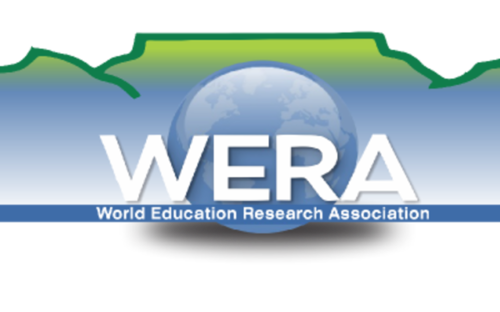Symposium at the 2018 WERA World Congress
August 3-5, 2018
The 2018 WERA World Congress: Reimaging Worldwide Education Research took place in Cape Town, South Africa.
Symposium on Extended Education
On this congress, the WERA-IRN EXTENDED EDUCATION was represented with the symposium Extended Education – An Emerging Global Research Field organized by Prof. Dr. Ludwig Stecher, Prof. Dr. Sabine Maschke and Prof. Dr. Marianne Schuepbach.
The symposium presented this global research field and summarized international research findings conducted by members of the WERA-IRN Extended Education.
The first presentation (Prof. Dr. Ludwig Stecher & Prof. Dr. Marianne Schuepbach) gave an overview of research on extended education from an international point of view. This was based on a systematic review of international research findings on extended education focused on the US, Europe and Asia. One of the major findings is that systematic research on the effectiveness of extended education programs is rare. The available studies show that participation in extended education provisions fosters academic achievement, social learning, and reduces antisocial behavior. However, the effects are usually small and are reached only if the programs are of high educational quality and a participation in the programs/activities for a long period. The review delineated some of the criteria that must be met to install effective programs. Up to now, such a systematic comparison of international publications is missing.
The term “effectiveness” usually neglects that extended education programs can have negative outcomes as well. The second presentation (Prof. Dr. Sabine Maschke) dealt with this neglected perspective in (extended) education research. During adolescence, young people have to meet a variety of developmental tasks. Their peers play a significant role in solving them. But peers are not only a resource of development. In some cases, they can also be a risk – this holds in particular with regard to sexual identity building. Empirically, the presentation investigated the extent of sexual violence and where it takes place. The main data base was a current and representative German study with about 2.700 9th and 10th graders. The study shows that almost every second adolescent has at least one experience with non-physical forms and almost every fourth with physical sexualized violence. In most cases, the sexualized violence originates from peers and places and activities where adolescents meet each other at are particularly risky places. Based on the study and international findings, the consequences for designing safe extended education programs were discussed.
Network Meeting of WERA-IRNs
Aside from organizing the symposium on extended education, the WERA-IRN EXTENDED EDUCATION was represented at the network meeting of the representatives of the international research networks (IRNs) within the WERA. Ludwig Stecher, the co-organizer of the WERA-IRN EXTENDED EDUCATION, represented our network, which is the youngest of all WERA-IRNs. In this first introduction to the colleagues of WERA, the history, the scientific background and the research topics of the IRN Extended Education were presented.

